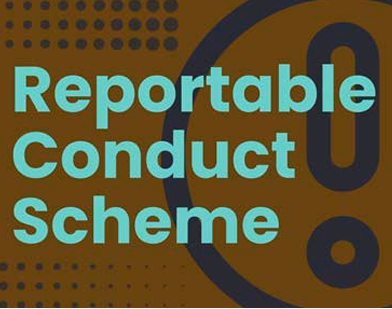From The Point: Deputy Secretary Kylie Busk on Reportable Conduct Schemes
Your newspaper The Point is hitting letterboxes as we speak. Over the next few weeks, we’ll be publishing cherry-picked highlights from the publication online. You can also view the full publication at: https://www.ieuvictas.org.au/member-publications
Deputy Secretary Kylie Busk: Reportable Conduct Schemes must be improved
Tasmania’s Reportable Conduct Scheme (RCS) became operational on 1 January, meaning all IEU Victoria Tasmania members now work under similar ‘child safe’ schemes.
This means further significant legislative frameworks and even more compliance obligations affecting the work and lives of people working in schools.
Let me be clear: the IEU fully supports creating child safe environments and addressing the genuine harm and abuse of young people in institutional settings.
However, the professional and personal safety of members must also be a priority for employers acting under these schemes.
After six years of operation of the RCS in Victoria we’ve learned much about how the scheme impacts members. It is a mostly negative tale of matters being pursued that don’t meet the legal threshold for the scheme; investigation processes which sometimes stretch to years; investigations not based in procedural fairness; and an alarming lack of support for those involved.
And we’ve seen that the financial and emotional resources needed for school leaders and staff to deal with conduct issues or allegations are enormous.
Fundamentally, education is human work, complex and dynamic, and our members do it incredibly well. The average person working in a school makes 2000 decisions every day and has hundreds of interaction every week. It is impossible for every one of these to be ‘perfect’.
Every day, educators address low level issues through reflective restorative practices. Often these issues are just a moment of less-than-perfect practice from overstretched staff dealing with challenging behaviours ‘on the fly’.
Most concerns raised in schools are not instances of wilful wrongdoing. They are more often misunderstandings arising from the complexity of dealing with students of various ages and needs and staff with varied levels of experience and approaches.
On page 14 of this edition, you can read about the harrowing RCS experience of ‘Chris’, a veteran of Catholic education. After finally being cleared after a confronting process which dragged on for nearly two years, Chris wanted to speak about their experience to promote awareness of the pitfalls of the RCS. Having worked closely with Chris over the past 18 months I witnessed first-hand the ‘dark place’ the RCS took them to. Chris was exonerated, in part, because they had been a meticulous record keeper, so they had evidence to prove the allegations could not have occurred. Not every person working in schools has access to such data.
Seeing how this experience devastated such a dedicated professional puts a fire in our belly to continue campaigning for improvements to this process for our members.
The introduction of these schemes should not be something for those working in schools to fear. However, in union with one another we must ensure that these schemes don’t diminish the good work of good people, and that workplace concerns are addressed by efficient, procedurally fair and supportive processes.

